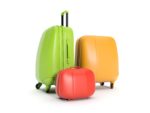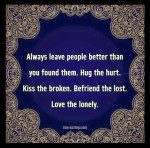Decisions Decisions
 Years ago, we spent a day at the San Diego Wild Animal Park with our family. As we were leaving, we heard a man on the phone (a pay phone mind you) say, “ Well, I don’t know about you but after you have seen over 20 species of antelope they kinda all start lookin’ the same.”
Years ago, we spent a day at the San Diego Wild Animal Park with our family. As we were leaving, we heard a man on the phone (a pay phone mind you) say, “ Well, I don’t know about you but after you have seen over 20 species of antelope they kinda all start lookin’ the same.”
When my husband and I were first married, we went to a friend’s house to pick out a kitten. There were 7 adorable balls of fur. The longer we tried to decide between them, the harder it became to choose one. We came home with two.
You have probably experienced the same type of thing when shopping or looking at family photos, or choosing produce at the grocery store. Your mind becomes unable to stay on task and everything starts to seem the same. Did you know that it is a well known syndrome and that it applies to decision making?
In a recent Article in the York Times, John Tierney discussed Decision Fatigue and how it impacts our lives. He described two common shortcuts people take when on overload.
One shortcut is to become reckless: to act impulsively instead of expending the energy to first think through the consequences. (Sure, tweet that photo! What could go wrong?) The other shortcut is the ultimate energy saver: do nothing. Instead of agonizing over decisions, avoid any choice.
I have seen both shortcuts in students. Some just blurt out any musical thing while others shutdown, refusing to incorporate suggestions or corrections and sometimes even to practice.
And what about choices—this piece or that one, whether to participate in an event, how to shape that pesky phrase, what to do to vary the repeat. Some students are inspired by choices while others are frozen by them. Sometimes, instead of or in addition to individual personality traits, these behaviors are actually due to decision fatigue.
Tierney wrote: A typical computer user looks at more than three dozen Web sites a day and gets fatigued by the continual decision making — whether to keep working on a project, check out TMZ, follow a link to YouTube or buy something on Amazon. Virtually no one has a gut-level sense of just how tiring it is to decide. Big decisions, small decisions, they all add up. Choosing what to have for breakfast, where to go on vacation, whom to hire, how much to spend — these all deplete willpower, and there’s no telltale symptom of when that willpower is low. It’s not like getting winded or hitting the wall during a marathon. Ego depletion manifests itself not as one feeling but rather as a propensity to experience everything more intensely. When the brain’s regulatory powers weaken, frustrations seem more irritating than usual.
Sound familiar? It happens to me too—when I have hours of students back to back, when too many people have too many questions, when choosing repertoire for my students, when I practice too long, when writing blog posts.
Turns out, following time honored practice advice is the best way to manage decision fatigue: take frequent breaks, eat right, choose a practice schedule and stick to it, do the nitty-gritty work early in your practice session, and rest before a performance.
When planning competitions, evaluations, and festivals we make certain that the judges have breaks complete with snacks every few hours to limit judges fatigue. We also randomly assign times, in part, so that everyone has an equal chance of having that unwanted slot when judges circuits might be overloaded.
Tierney spoke with social psychologist Roy F. Baumeister who coined the term decision fatigue. “Good decision making is not a trait of the person, in the sense that it’s always there,” Baumeister says. “It’s a state that fluctuates.” His studies show that people with the best self-control are the ones who structure their lives so as to conserve willpower. They don’t schedule endless back-to-back meetings. They avoid temptations like all-you-can-eat buffets, and they establish habits that eliminate the mental effort of making choices. Instead of deciding every morning whether or not to force themselves to exercise, they set up regular appointments to work out with a friend. Instead of counting on willpower to remain robust all day, they conserve it so that it’s available for emergencies and important decisions.
“Even the wisest people won’t make good choices when they’re not rested and their glucose is low,” Baumeister points out. That’s why the truly wise don’t restructure the company at 4 p.m. They don’t make major commitments during the cocktail hour. And if a decision must be made late in the day, they know not to do it on an empty stomach. “The best decision makers,” Baumeister says, “are the ones who know when not to trust themselves.”
I’d like to write more but I can’t decide what.
Here is a link to another blog post on the subject from Gretchen’s Pianos



Great Minds Think Alike:)
Great post, great pic, Gail!
We’re related, I’m sure. Here’s a link to my post based on the same article:
http://wp.me/pE5t8-3nk